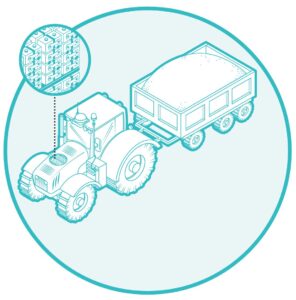Electricity and water don’t mix. Pretty basic, I know. And, I bet you already knew that. I had the “opportunity” to know it from more than just an academic standpoint recently. After a day trip to Springfield, we returned home to find more than five inches and twenty-five hundred gallons of water in our basement.
Guess where our family keeps the computer room? You’re right! They are stored in the basement.
Now, we are not a typical family. Everyone has their own computer, all networked together so we can interact together for a variety of different things. So, there were a total of five computers down there. Some were on desks, but two were actually submerged, which brings me back to my original point: electricity and water don’t mix. In particular, computer components don’t do well being submerged, and they really don’t do well when they are connected to a live power source at the time.
Warning – never step into a flooded basement if there is a chance that flood waters may be in contact with outlets or electrical cords.
After turning the water off to the house, and calling the insurance company, our next concern was for the data stored on the computers. You see, computers are easily replaced but the countless family photos, school projects, and videos of the children could have been lost forever.
Except, of course, we had everything backed up online.
We use an online file storage. There are many available and they all have varying levels of security, but having something like this in place certainly saved us from data loss. My family uses DropBox.
DropBox does have some security professionals on edge because of the levels of sharing it offers. Additionally, when installed on a business network running Windows Server, DropBox can add some network traffic as it seeks to update files to the newest versions across devices with shared folders. That type of traffic can look to some network administrators like a breech in their security. In fact though, I’ve found it to be fine.
But, for personal use, I think DropBox is fantastic. It allows for the creation of a file system that mimics the way your operating system stores files. That way you can save your photos and files seamlessly the way in which you are already accustomed.
Even better, once you install the DropBox application on other devices, and connect them to the Internet, your file system, along with the accompanying files are automatically synced to the new device. Then, once you make changes, those changes are universal.
The biggest benefit is that you’re no longer tied to one device. Your files now exist anywhere you have an Internet connection. When the connection is no longer available for whatever reason, you still keep the version of the file you were last working on as your current version. Then, when you reconnect, your files all resync again.
Another big positive for this kind of system is versioning. Say I have shared a folder with my wife so that we can both work on our family tree document together. If she accidentally makes a mistake in adding information, and then saves the mistake in the file, normally that would overwrite my original file and it would take extraordinary measures for me to revert back. With DropBox, I can simply log in to the website and see all the previous versions of the file (within a certain date range), thus allowing for recovery of the original file. You can even recover deleted files in this manner.
I would encourage you to do some of your own research into online cloud storage for backup purposes. If nothing else, you could set up a Windows backup routine and point it toward the online storage. Then, if your basement floods like mine did, you can easily recover your important files.









